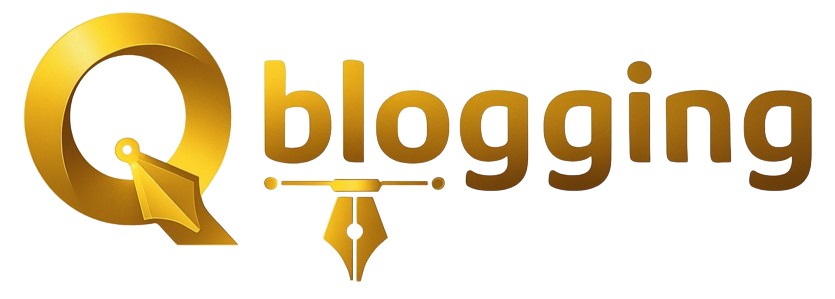With iOS 26, Apple leans fully into its year-based naming system. Announced at WWDC on June 9, 2025, this release delivers the most dramatic visual overhaul since iOS 7, driven by its bold new Liquid Glass design. But it isn’t just about looks. iOS 26 layers in smarter automation, deeper Apple Intelligence, improved apps, and accessibility features that reshape the way iPhones feel and function.
Let’s break down what’s new, who gets it, and why it matters.
Visual Overhaul: Liquid Glass
Apple introduces Liquid Glass, a design language inspired by visionOS. It’s dynamic, translucent, and reacts to your movement. You’ll notice it across:
- Lock and Home screens with layered effects and 3D wallpapers that shift as you move.
- App icons that blend into backgrounds, switching between tinted and transparent states.
- Floating controls where buttons and toolbars morph with context, making touch navigation more intuitive.
- Lock screen clock that shifts automatically to balance wallpaper and notifications.
The result is a system that feels more alive—sleek but playful, familiar but refreshed.
Apple Intelligence: Subtle but Powerful
Rather than flashy gimmicks, Apple’s AI aims to be invisible but effective. Notable additions include:
- Visual Intelligence to understand what’s on your screen, letting you highlight text or screenshots and instantly turn them into events, notes, or answers.
- Live Translations across calls, Messages, and FaceTime for seamless multilingual communication.
- Creative tools like Genmoji, Image Playground, and ChatGPT-powered shortcuts for more expressive interactions.
It’s privacy-conscious AI that enhances daily use without overwhelming it.
Smarter Communication: Calls and Messages
Apple has reworked how iPhones handle everyday conversations:
- Phone app: Adds AI-powered call screening, “Hold Assist” to handle wait times, and a redesigned unified history. Some users dislike how voicemails and missed calls are tucked into “More,” creating clutter.
- Messages: Gains scheduled sending, richer tapbacks, and better control over notifications.
Convenient, though not without quirks.
Updates Across Apps and System
iOS 26 refreshes multiple built-in experiences:
- Photos gets a simplified layout and smarter memory resurfacing.
- Siri improves at contextual conversation, finally feeling more natural.
- Apple Games debuts as a dedicated hub, while Maps, CarPlay, Wallet, and Music all sport updated designs.
- Adaptive Power Mode adjusts brightness and background activity on the fly, extending battery life without forcing Low Power Mode.
- Battery insights now show time-to-full-charge, usage breakdowns, and clearer visuals.
These tweaks add polish across the ecosystem.
Compatibility: Who Can Upgrade
Support extends to iPhone 11 and newer, including SE (2nd gen) and above.
- Dropped: iPhone XS, XS Max, and XR.
- Hardware limits: Apple Intelligence is restricted to iPhone 15 Pro and newer due to on-device AI processing needs.
Release Timeline
Apple announced iOS 26 at its September 9, 2025 keynote. Public rollout begins mid-September, with staged activation expected around September 15 or 16.
Wins and Challenges
Wins
- Liquid Glass makes iOS feel alive again.
- Apple Intelligence feels practical and polished.
- Subtle quality-of-life features improve accessibility and power management.
Challenges
- The Phone app redesign hides useful info behind cluttered menus.
- Some users argue the visual update feels evolutionary, not revolutionary.
- AI features are locked to newer devices, leaving older iPhones behind.
The Bottom Line
iOS 26 is more than a facelift—it’s Apple finding a balance between design ambition and everyday usability. If you’re on an iPhone 11 or newer, it’s a worthy upgrade that makes your device feel fresh without forcing you to relearn everything. For iPhone 15 Pro users, Apple Intelligence is the real prize, unlocking features that blend AI seamlessly into your daily flow.
For most, it’s a thoughtful update that sets the stage for Apple’s future vision of the iPhone.
FAQs About iOS 26
Q1. What is the biggest change in iOS 26?
The standout feature is Liquid Glass, a translucent design system that adds depth, layering, and movement across the interface.
Q2. Which iPhones support iOS 26?
iPhone 11 and newer, including SE (2nd gen). The XS, XS Max, and XR are not supported.
Q3. What AI features are included?
Apple Intelligence brings Visual Intelligence, live translations, smarter Siri, Genmoji, Image Playground, and AI-powered call tools. Some require iPhone 15 Pro or later.
Q4. When is iOS 26 available?
Announced September 9, 2025, rolling out mid-September, likely around the 15th.
Q5. What’s new in the Phone app?
Call screening, Hold Assist, and a unified call history. Some users dislike the clutter from the new layout.
Q6. How does iOS 26 affect battery life?
Adaptive Power Mode dynamically reduces energy use without affecting usability, alongside improved battery insights.
Q7. Is it worth upgrading?
Yes—if you’re on iPhone 11 or newer. The design feels modern, AI features are genuinely useful, and system tweaks improve the experience.
